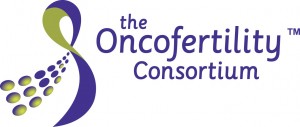 Oncofertility is an interdisciplinary field at the intersection of oncology and reproductive medicine that expands fertility options for young cancer survivors. Experts in this field identify which cancer treatments are likely to damage later reproductive ability for men, women, and children and develop new fertility preservation methods. In addition, these scientists are also identifying cancer treatments that may be “fertoprotective” and prevent damage to the reproductive organs during cancer treatment. Every year, experts in this field meet to discuss the recent advances in oncofertility scientific and medical treatment. The sixth annual conference is September 27 - 28, 2012 in Chicago, IL.
Oncofertility is an interdisciplinary field at the intersection of oncology and reproductive medicine that expands fertility options for young cancer survivors. Experts in this field identify which cancer treatments are likely to damage later reproductive ability for men, women, and children and develop new fertility preservation methods. In addition, these scientists are also identifying cancer treatments that may be “fertoprotective” and prevent damage to the reproductive organs during cancer treatment. Every year, experts in this field meet to discuss the recent advances in oncofertility scientific and medical treatment. The sixth annual conference is September 27 - 28, 2012 in Chicago, IL.
The program for this two-day conference on fertility after cancer features translational and clinical research on fertility preservation, lessons learned from individual fertility preservation programs, a speech and special performance by the founder of the adolescent and young adult cancer advocacy group, Stupid Cancer, and a Keynote Symposium by Hamish Wallace, MD (Royal Hospital for Sick Children, Edinburgh). During the two days of the conference, more than 20 invited speakers from across the globe will present cutting-edge information to attendees.
Health care providers will be provided with CME or nursing contact hours at no additional cost. For more information or to register for the conference, visit the website at http://bit.ly/oncofert12 or email oncofertility@northwestern.edu. The 2012 Oncofertility Conference is funded by the NIH (Grant 5R13HD063248-03), and an unrestricted educational grant from Ferring Pharmaceuticals, Inc.
To learn more about fertility and cancer, visit SaveMyFertility.org and download the free iPhone app.

 This weekend, the
This weekend, the  Dr. Teresa Woodruff, Director of the Institute for Women's Health Research at Northwestern, and her colleagues have just released their second book on oncofertility. Oncofertility is a new field of study named by Dr. Woodruff who is a leader in the study of fertility preservation in women who have lost their fertility due to cancer therapies and other conditions that threaten their ability to conceive and bear children. The issue of fertility preservation is of particular concern to young breast cancer survivors and their health care team. To learn more about this book and where to find it read below.
Dr. Teresa Woodruff, Director of the Institute for Women's Health Research at Northwestern, and her colleagues have just released their second book on oncofertility. Oncofertility is a new field of study named by Dr. Woodruff who is a leader in the study of fertility preservation in women who have lost their fertility due to cancer therapies and other conditions that threaten their ability to conceive and bear children. The issue of fertility preservation is of particular concern to young breast cancer survivors and their health care team. To learn more about this book and where to find it read below.